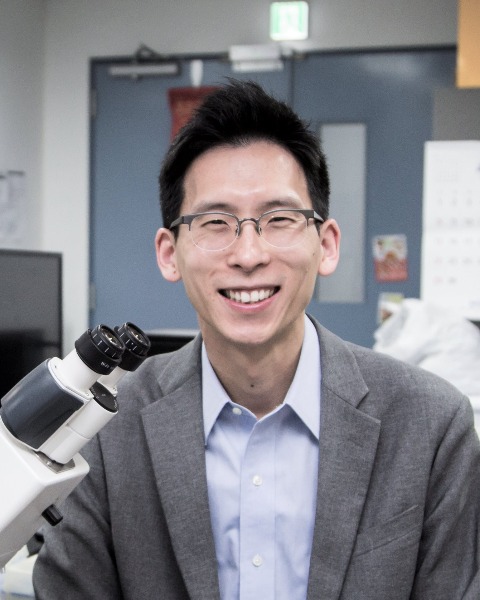Back
On-demand recording will be available 24hrs after the presentation.
New Modalities
Nucleic acid-targeted drug discovery
Droplet squeezing for CRISPR/Cas9-based T cell genome editing
Tuesday, February 8, 2022
10:30 AM – 11:00 AM
Location: 206AB

Aram Chung, PhD
Associate Professor / CEO
Korea University / MxT Biotech, Seoul-t'ukpyolsi, Republic of Korea
Original cell functions can be specifically reprogrammed and manipulated by internalizing external biomolecules such as DNAs, RNAs, plasmid DNAs, proteins, or nanomaterials into cells. For example, clustered regularly interspaced short palindromic repeats (CRISPR)/Cas9 genomic editing is accomplished by delivering RNA-guided Cas9 nuclease into target cells. Traditionally external cargos have been introduced into cytosol or nucleus using viruses, lipid nanoparticles, or electroporators; however, they are suboptimal for achieving desired levels of cellular engineering due to their inconsistent and ineffective genome editing quality, cytotoxicity, high cost, and/or low scalability.
To bring cellular engineering to the next level, a novel droplet-based intracellular delivery platform is presented by leveraging droplet microfluidics with mechanical cell permeabilization. In our approach, a single cell and external cargos (e.g., mRNAs, plasmid DNAs and CRISPR/Cas9 ribonucleoproteins) were encapsulated into droplets. Then, the droplets were accelerated by the sheath flow and as they pass through a single constriction at high speed, the cell membrane is mechanically permeabilized where the cargos in the vicinity are effectively internalized. Using this platform, we demonstrated a high level of functional macromolecules delivery into various immune cells, including human primary T cells. Furthermore, we demonstrated superior genome editing via CRISPR-Cas9 delivery compared to that of current benchtop techniques such as lipofectamine and electroporation while maintaining high cell viability and biostability, providing a practical and robust approach anticipated to critically impact cellular engineering.
To bring cellular engineering to the next level, a novel droplet-based intracellular delivery platform is presented by leveraging droplet microfluidics with mechanical cell permeabilization. In our approach, a single cell and external cargos (e.g., mRNAs, plasmid DNAs and CRISPR/Cas9 ribonucleoproteins) were encapsulated into droplets. Then, the droplets were accelerated by the sheath flow and as they pass through a single constriction at high speed, the cell membrane is mechanically permeabilized where the cargos in the vicinity are effectively internalized. Using this platform, we demonstrated a high level of functional macromolecules delivery into various immune cells, including human primary T cells. Furthermore, we demonstrated superior genome editing via CRISPR-Cas9 delivery compared to that of current benchtop techniques such as lipofectamine and electroporation while maintaining high cell viability and biostability, providing a practical and robust approach anticipated to critically impact cellular engineering.


